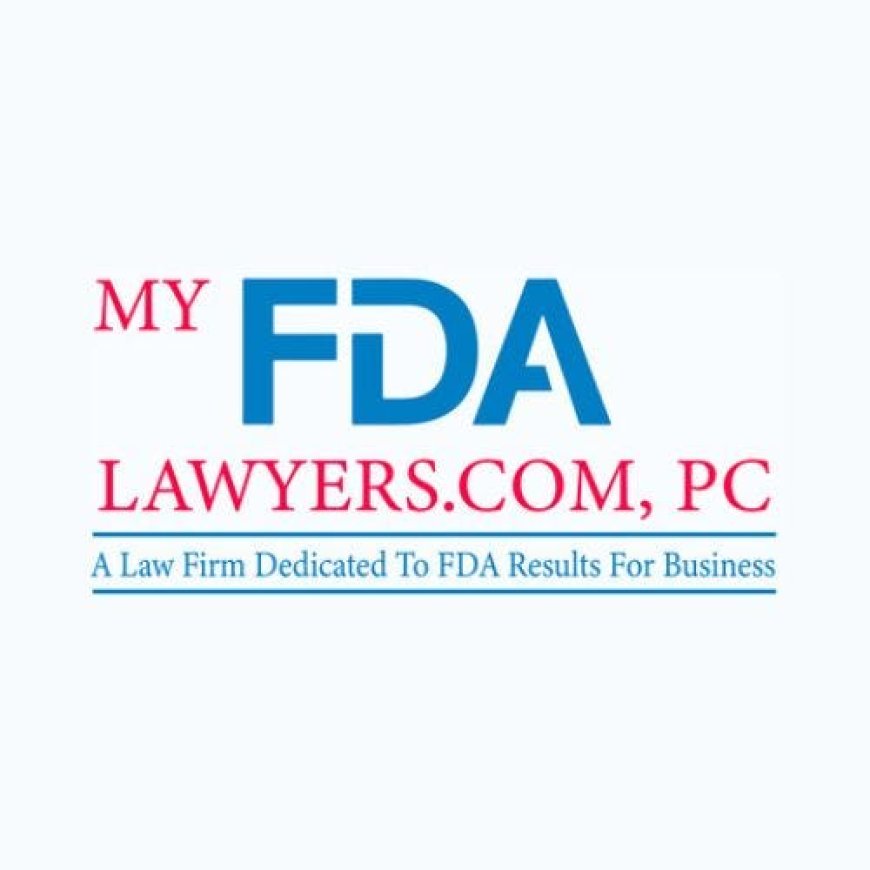Introduction
Navigating the regulatory landscape governed by the Food and Drug Administration (FDA) can be a daunting task for companies seeking to bring their products to market. Among the myriad challenges, FDA Detentions stand out as a significant obstacle. FDA detentions occur when a product is refused entry into the United States due to violations of FDA regulations. These detentions can lead to costly delays, tarnished reputations, and even legal consequences for companies.
In this comprehensive guide, we will delve into the insider secrets to effectively handling FDA detentions, with a particular focus on understanding the intricacies of the 510(k) process and leveraging GMO Counsel Services to navigate regulatory hurdles successfully.
Understanding FDA Detentions
FDA detentions occur when a product fails to meet the regulatory requirements set forth by the FDA. These requirements encompass various aspects, including labeling, safety, and manufacturing practices. When a product is detained, it is held at the port of entry, preventing it from entering the U.S. market until the issues are resolved.
Common reasons for FDA detentions include:
-
Labeling violations: Incorrect or misleading labeling can lead to detentions. It's crucial for companies to ensure that their product labels comply with FDA regulations, including proper ingredient listings, nutrition facts, and health claims.
-
Safety concerns: Products that pose a risk to consumer health and safety are subject to detention. This includes products with undeclared allergens, microbial contamination, or unsafe additives.
-
Manufacturing deficiencies: Failure to adhere to Good Manufacturing Practices (GMP) can result in detentions. Companies must maintain stringent quality control measures throughout the manufacturing process to prevent issues such as contamination or adulteration.
-
Regulatory non-compliance: Failure to obtain the necessary approvals or clearances from the FDA can lead to detentions. This includes products that lack proper premarket submissions or have not undergone the required testing and evaluation.
Navigating the 510(k) Process
For companies developing medical devices, understanding the 510(k) process is essential for obtaining FDA clearance to market their products. A 510(k) submission is a premarket notification required for most medical devices that do not require premarket approval (PMA). The goal of the 510(k) process is to demonstrate that the new device is substantially equivalent to a legally marketed predicate device.
Here are some insider secrets to navigating the 510(k) process effectively:
-
Conduct thorough predicate device research: Identifying the right predicate device is critical for a successful 510(k) submission. Companies should conduct comprehensive research to ensure that their device is indeed substantially equivalent to the predicate in terms of intended use, technological characteristics, and performance.
-
Prepare a comprehensive submission package: A well-prepared 510(k) submission package is key to expediting the review process. This package should include detailed descriptions of the device, its intended use, performance data, and any relevant clinical studies or testing results.
-
Engage with the FDA early and often: Establishing open communication with the FDA can help streamline the 510(k) review process. Companies should proactively engage with the FDA, seeking feedback and clarification on regulatory requirements to address any potential issues upfront.
-
Leverage expert guidance: Working with regulatory consultants or legal counsel experienced in the 510(k) process can provide valuable insights and guidance. These experts can help navigate complex regulatory requirements, identify potential pitfalls, and develop strategies for a successful submission.
GMO Counsel Services: A Strategic Approach to Regulatory Compliance
In addition to medical devices, companies operating in the food and agriculture industries must navigate a complex regulatory landscape governed by agencies such as the FDA and the U.S. Department of Agriculture (USDA). Genetically modified organisms (GMOs) are subject to rigorous regulatory scrutiny due to potential environmental and health concerns.
GMO Counsel Services offer strategic guidance and legal expertise to companies involved in the development, production, and distribution of genetically engineered products. These services encompass a range of regulatory compliance activities, including:
-
Regulatory compliance assessments: GMO Counsel Services assist companies in evaluating their products and operations to ensure compliance with applicable FDA and USDA regulations. This includes assessing the regulatory status of genetically modified crops and food products and identifying any potential compliance gaps.
-
Risk management strategies: Developing robust risk management strategies is essential for companies working with GMOs. GMO Counsel Services help companies identify and mitigate potential risks associated with genetically engineered products, including environmental impacts, food safety concerns, and regulatory challenges.
-
Advocacy and lobbying: GMO Counsel Services advocate on behalf of companies within the regulatory and legislative arenas, influencing policy decisions and shaping regulatory frameworks to support the responsible development and commercialization of genetically modified products.
-
Litigation support: In the event of regulatory enforcement actions or legal challenges, GMO Counsel Services provide expert legal representation and support to companies, helping to navigate complex legal proceedings and defend against allegations of regulatory non-compliance.
Conclusion
Navigating FDA detentions and regulatory compliance challenges requires a strategic and proactive approach. By understanding the intricacies of the 510(k) process and leveraging GMO Counsel Services, companies can effectively navigate regulatory hurdles and ensure the successful market entry of their products. By adhering to best practices, engaging with regulatory experts, and maintaining a commitment to compliance, companies can mitigate risks, protect their reputation, and achieve regulatory success in today's complex regulatory environment.

 Like
0
Like
0
 Dislike
0
Dislike
0
 Love
0
Love
0
 Funny
0
Funny
0
 Angry
0
Angry
0
 Sad
0
Sad
0
 Wow
0
Wow
0

















































